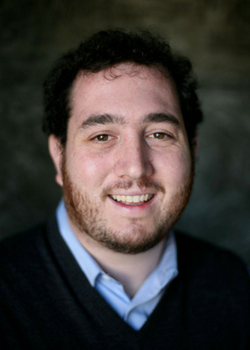Some time ago, an eighth grade student came to my office to interview me about being a rabbi. It was Career Day at her school, and her assignment was to meet with someone in an job she found interesting and ask a list of pre-prepared questions, among them: "Do you have to wear a suit to your job? How much do you get paid? Is there much heavy lifting?"
My favorite question was: "Is being a rabbi dangerous?" I suppose this question was meant more for fire fighters or deep sea fishermen, but I found myself giving an unexpected answer: "Yes, any job that comes with a title is dangerous."
Titles are dangerous because they give us something to hide behind, a cloak to disguise our flawed and vulnerable humanity, from others and from ourselves. It is easy for a doctor to begin to see himself as the master of life and death, and be crushed, therefore, when he receives a diagnosis of his own. It is easy for a police officer to begin to see herself as the arbiter of justice, and to forget that the rules apply equally to her as to the rest of us. And, I can say from painful personal experience, as a rabbi it is easy to start to believe that we speak for God Almighty – when, in fact, we are just searching people trying to find our own way to faith.
This week's torah and haftarah portions contain the only two deathbed scenes that I know in the Tanakh. Abraham simply dies, as does Isaac. Moses breathes his last on a mountaintop all alone. But Jacob and David both die in the company of others. And, in their final moments, these powerful men teach us an important lesson about a shared, essential humanity that extends beyond any title.
Jacob, the wrestler, literally began his life jockeying for position and used all his cunning to build a massive clan, complete with half a harem of wives and an overabundance of sons, with cattle and flocks and great wealth. Throughout his life he speaks in a tone of cocky self-assurance, demanding blessings from God and men alike. Yet, as this parasha opens, a very sick old man speaks in a different tone:
"And Jacob said to Joseph: ‘Please, if I have found favor in your eyes, pleaseplace your hand on my thigh and do me this true kindness, please don't bury me in Egypt!'"
Note the three-fold repetition of the word "please," this is the language of a supplicant, not a lord. In his last moments, Jacob speaks not as a master of men, but in vulnerable language, appealing for compassion with the humility of one who knows – despite their fondest hopes -- they cannot control their own destiny.
Our haftarah is even more clear about the transformation that takes place at the end of life. The first chapter of the Book of Kings begins with the words: "And King David grew old," while the next chapter begins "And David came close to dying." In chapter one, he is still a king — an old man navigating the palace intrigues of ambitious sons and jealous wives, of treaties and wars and conquests. Yet, when the end was there, his title evaporates like vapor. In that moment, he was just David, lying in a bed, making his final peace.
The Book of Ecclesiastes, itself a deep meditation on human mortality, contains a famous line: "There is no sovereignty on the day of one's death" (Ecclesiastes 8:8). In that most vulnerable and human of places, all the distinctions that separate us from one another in life fall away. Jacob was no longer the chieftain. David was no longer the king. Their titles served them in life, but could not escort them all the way to end.
Titles are dangerous, I told my eighth grade visitor, because they can make us forget who we really are. And, so it is necessary to recall the lesson of our forefathers, who in their vulnerable final moments taught us the essential truth that we leave the world as we enter it -- fragile and free -- not as princes or paupers, but simply as human beings. Just ourselves. Which, it turns out, is all we've ever been.
Shabbat Shalom.

